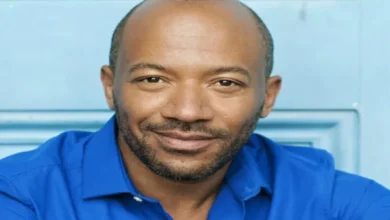Robert Chote: A Beacon of Fiscal Responsibility and Economic Expertise
Exploring the Life, Career, and Enduring Legacy of Sir Robert Chote in UK and Global Economics

Robert Chote is a prominent British economist renowned for his leadership in key public finance institutions, including the Office for Budget Responsibility (OBR) and the UK Statistics Authority (UKSA). With a career marked by integrity, analytical rigor, and transparency, Chote has been instrumental in shaping the UK’s economic policy landscape. From his early days in journalism to high-ranking roles in government oversight, his influence spans decades. Known for his clear communication and non-partisan approach, Robert Chote continues to be a respected voice in both national and international fiscal discourse.
Early Life and Education
Robert Chote was born on January 24, 1968. From a young age, he demonstrated an aptitude for economics and public affairs, which would later define his career. He pursued his undergraduate studies in economics at Queens’ College, Cambridge, one of the UK’s most prestigious institutions. To further deepen his expertise, Chote went on to study journalism at City University, London, and later earned a Master’s in Public Policy from the Paul H. Nitze School of Advanced International Studies at Johns Hopkins University in Washington, D.C. This robust educational foundation equipped him with a unique blend of analytical and communicative skills that would serve him well in his professional life.
Journalism and Early Career
Before becoming a household name in economics, Robert Chote began his professional journey in journalism. He joined The Independent and later moved to The Independent on Sunday, where he quickly earned recognition as “Young Financial Journalist of the Year” in 1993. His ability to distill complex financial information into accessible language made him a standout in the field. From 1995 to 1999, Chote served as the Economics Editor at the Financial Times, where he covered global economic developments and UK fiscal policy. These formative years in journalism shaped his later approach to public communication and policy transparency.
Transition to Policy and the IMF Experience
In 1999, Robert Chote made a significant career pivot by joining the International Monetary Fund (IMF) in Washington, D.C., as an advisor. During his time at the IMF, he worked under notable figures like Stanley Fischer and Anne Krueger. This experience provided him with a broader global perspective on economic policy, crisis management, and institutional governance. It also laid the groundwork for his later roles in public finance and statistical oversight.
Leadership at the Institute for Fiscal Studies
In 2002, Chote was appointed Director of the Institute for Fiscal Studies (IFS), a highly respected think tank focused on economic research and policy analysis. During his eight-year tenure, he significantly elevated the institute’s public profile and credibility. Under his leadership, the IFS became a go-to source for independent analysis of government budgets and fiscal policy. His clear, unbiased communication helped the public and policymakers better understand the implications of fiscal decisions, especially during the 2008 financial crisis.
Chairing the Office for Budget Responsibility
Perhaps the most defining role of Robert Chote’s career came in 2010 when he was appointed Chairman of the newly established Office for Budget Responsibility (OBR). Tasked with providing independent economic forecasts and fiscal analysis, the OBR was central to improving transparency in government finances. Chote’s leadership brought credibility and clarity to the UK’s budgeting process. He was reappointed in 2015 and served a full decade, becoming one of the most trusted voices in UK fiscal policy. His tenure included navigating the economic aftermath of the global financial crisis, austerity measures, and the uncertainty surrounding Brexit.
Influence During Brexit
Robert Chote’s role during the Brexit process was pivotal. As OBR Chair, he consistently advocated for evidence-based policy and transparency in economic forecasting. He publicly highlighted the fiscal risks of a hard or disorderly Brexit, including slower economic growth and increased public debt. His balanced, non-political stance earned him respect across party lines and solidified his reputation as a protector of economic truth in politically turbulent times.
Chairmanship of the UK Statistics Authority
In 2022, Chote was appointed Chairman of the UK Statistics Authority (UKSA), where he served until July 2025. In this role, he focused on improving the quality, integrity, and accessibility of national statistics. He emphasized the importance of linking government datasets to enhance policy outcomes and advocated for greater investment in statistical infrastructure. Despite stepping down amid systemic issues within the Office for National Statistics, his efforts toward transparency and modernization left a lasting impact.
Current Role and Future Outlook
As of September 2025, Robert Chote is set to become President of Trinity College, Oxford. This move marks a transition from public service to academic leadership, where he will continue to influence economic thinking and mentor the next generation of economists and policymakers. His appointment is widely seen as a testament to his intellectual rigor, integrity, and long-standing contributions to the field of economics.
Robert Chote Age
Born on January 24, 1968, Robert Chote is currently 57 years old. His decades-long career spans journalism, global economic policy, national fiscal oversight, and academic leadership, making him one of the most experienced and respected figures in British economics.
Robert Chote Family
Robert Chote is married to Dame Sharon White, a distinguished public servant and former CEO of Ofcom and Chair of the John Lewis Partnership. The couple, who married in 1997, has two children. Their partnership represents a powerhouse of public service and leadership in the UK, with both having held influential roles in shaping national policy.
Robert Chote Net Worth
While exact figures regarding Robert Chote’s net worth are not publicly disclosed, his various high-profile roles in public service, combined with academic appointments and advisory positions, suggest a financially stable and accomplished career. As someone who has predominantly worked in public institutions, his wealth is not the focus of his legacy; rather, it is his commitment to transparency and public good that defines his professional life.
Robert Chote Wikipedia
Robert Chote has a dedicated Wikipedia page that provides an overview of his career, education, and public roles. The page serves as a reliable reference for his biographical details, institutional affiliations, and major career milestones. However, for those seeking a deeper understanding of his impact, this article offers a more comprehensive narrative of his journey and achievements.
Legacy and Contributions
Robert Chote’s legacy is deeply embedded in the fabric of UK public finance and economic policy. His tenure across various institutions emphasized the importance of data-driven decision-making, transparency, and independence from political influence. He transformed how governments approach fiscal responsibility and inspired a culture of accountability in economic governance.
In an era where public trust in institutions is increasingly fragile, Chote’s unwavering commitment to truth, clarity, and responsibility stands out. Whether through his reports at the OBR, speeches at the IFS, or statistical reforms at the UKSA, Robert Chote has continually worked to make economic policy understandable and trustworthy for both policymakers and the public.
As he takes on his new role at Trinity College, Oxford, there is little doubt that his influence will continue to grow, shaping minds and policies for years to come.
Conclusion
Robert Chote exemplifies what it means to serve with integrity and expertise. From journalism to global economics and national statistics, he has built a career grounded in facts, transparency, and public service. As he enters the academic realm, his legacy serves as a guidepost for aspiring economists and policymakers around the world. His name is and will remain synonymous with economic clarity, trust, and enduring public value.



